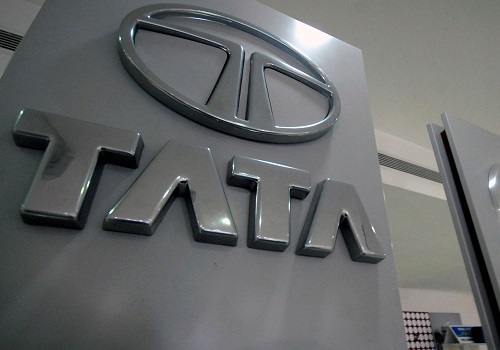2024-01-23 02:16:35 pm | Source: PR Agency

Strategic promotion of ICE+EV hybrid vehicles, especially in the smaller segment, is considered vital for achieving economies of scale. State policies, supported by the Central Government, are anticipated to incentivize this through investment policies and centrally sponsored schemes. The targeted implementation of Production-Linked Incentive (PLI) schemes for EV charging companies remains a key focus. Ongoing support, including tax deductions for EV purchasers and extension of FAME-II subsidies or the potential introduction of FAME-III, underscores the unwavering commitment to a green transition.
The automotive industry anxiously awaits insights into the GST landscape, particularly for entry-level two-wheelers. Expectations center around potential FAME 3 schemes and a revision of GST rates for electric two-wheelers. Calls for a uniform 5% GST on all EV spare parts, aligning with the 5% GST on vehicles, echo the industry's aspiration for a more equitable tax structure. Advocacy for innovation-centric initiatives, coupled with capacity-building incentives, is paramount for widespread EV adoption. The recommendation to lower the GST rate on batteries from 18% to 5% aligns battery swapping and subscription services with EVs, representing a crucial step forward.
Budget Expectations 2024 - Solar & EV Industry by Mr. Raman Bhatia, Servotech Power Systems Ltd.

Below the Quote on Budget Expectations 2024 - Solar & EV Industry by Mr. Raman Bhatia, Managing Director, Servotech Power Systems Ltd.
For EV Industry
The announcement of Budget 2024 is coming closer and various industries have their own set of expectations from the upcoming budget including the EV industry. The EV Industry holds a strong potential to revolutionize India's transportation sector and for the EV industry to flourish there should be a strong push for upskilling and reskilling through centrally sponsored schemes to build a skilled workforce in the evolving EV industry. Sustainable growth in the EV sector is contingent upon technological innovation aimed at reducing costs, extending range, and revolutionizing charging infrastructure. This evolution pivots on developing Battery Management Systems (BMS) and nurturing domestic capabilities for battery manufacturing. Significant government funding, directed specifically at charging infrastructure in Tier II and Tier III cities, emphasizes open data standards and APIs, fostering interoperability and a resilient software ecosystem. Proposals to reduce GST on lithium batteries from 18% to 5% represent a game-changer, significantly cutting down EV acquisition costs and enhancing overall attractiveness.
Strategic promotion of ICE+EV hybrid vehicles, especially in the smaller segment, is considered vital for achieving economies of scale. State policies, supported by the Central Government, are anticipated to incentivize this through investment policies and centrally sponsored schemes. The targeted implementation of Production-Linked Incentive (PLI) schemes for EV charging companies remains a key focus. Ongoing support, including tax deductions for EV purchasers and extension of FAME-II subsidies or the potential introduction of FAME-III, underscores the unwavering commitment to a green transition.
The automotive industry anxiously awaits insights into the GST landscape, particularly for entry-level two-wheelers. Expectations center around potential FAME 3 schemes and a revision of GST rates for electric two-wheelers. Calls for a uniform 5% GST on all EV spare parts, aligning with the 5% GST on vehicles, echo the industry's aspiration for a more equitable tax structure. Advocacy for innovation-centric initiatives, coupled with capacity-building incentives, is paramount for widespread EV adoption. The recommendation to lower the GST rate on batteries from 18% to 5% aligns battery swapping and subscription services with EVs, representing a crucial step forward.
For Solar Industry
The upcoming Union Budget 2024-25 holds paramount importance for India's green energy sector. Addressing concerns about solar panel imports, the budget should prioritize measures for indigenous development, technology transfer, and incentives for local manufacturing to curb foreign exchange outflow. The PLI scheme for renewable manufacturing and viability gap funding for battery storage is crucial for advancing India's energy goals. A revision of GST rates for the renewable energy sector and increased budgetary allocation for batteries under PLI are pressing needs. Focusing on workforce development through AI-driven technology, bulk procurement, and energy storage solutions is essential for sector efficiency. Infrastructure strengthening, public-private partnerships, and streamlined regulations will pave the way for a sustainable energy future. Collaborations to include solar panels in new houses and green FDI initiatives are anticipated. Recommendations for reduced customs duties on solar imports, enhanced concessional finance availability, and a dedicated nodal agency for sector investments underscore the call for a conducive environment. Addressing state restrictions on installed transformer capacity, advocating for unrestricted net metering, and extending the ISTS waiver are critical steps. Reduction in customs duty on solar cells, an extension of ALMM, and shortening project implementation time are needed to support indigenous solar manufacturing, shaping the nation's energy landscape and influence its global standing in sustainable practices.
Above views are of the author and not of the website kindly read disclaimer
Disclaimer:
The content of this article is for informational purposes only and should not be considered financial or
investment advice. Investments in financial markets are subject to market risks, and past performance is
not indicative of future results. Readers are strongly advised to consult a licensed financial expert or
advisor for tailored advice before making any investment decisions. The data and information presented
in this article may not be accurate, comprehensive, or up-to-date. Readers should not rely solely on the
content of this article for any current or future financial references.
To Read Complete Disclaimer Click Here
Latest News

Government signs Rs 5,083 crore deals to acquire he...

India`s steel sector aims to reach 300 million tonne...

Gujarat`s `Miracle Boy`boosts dairy yields with reco...

India can play key role as world`s manufacturing par...

`Farmers step onto global stage`: CM Himanta Biswa S...

India`s cleantech hiring surges 56 pc in last 2 years

Silver Update as 03rd March 2026 by Amit Gupta, Kedi...

Adani Group`s $100 billion plan for renewable-powere...

UIDAI completes Aadhaar biometric updates for 1.2 cr...

Canada bets big on India`s growth by crucial $2.6 bi...
Tag News

Silver Update as 03rd March 2026 by Amit Gupta, Kedia Advisory

Quote on Markets 02nd March 2026 by Mr. Vikram Kasat, Head Advisory, PL Capital

Crude Oil Prices Explode as Middle East Conflict Intensifies by Amit Gupta, Kedia Advisory

Quote on GST collection numbers for February 2026 by Karthik Mani, Partner & Leader - Indirect Tax : South, Tax & Regulatory Advisory at BDO India
More News
News Not Found






